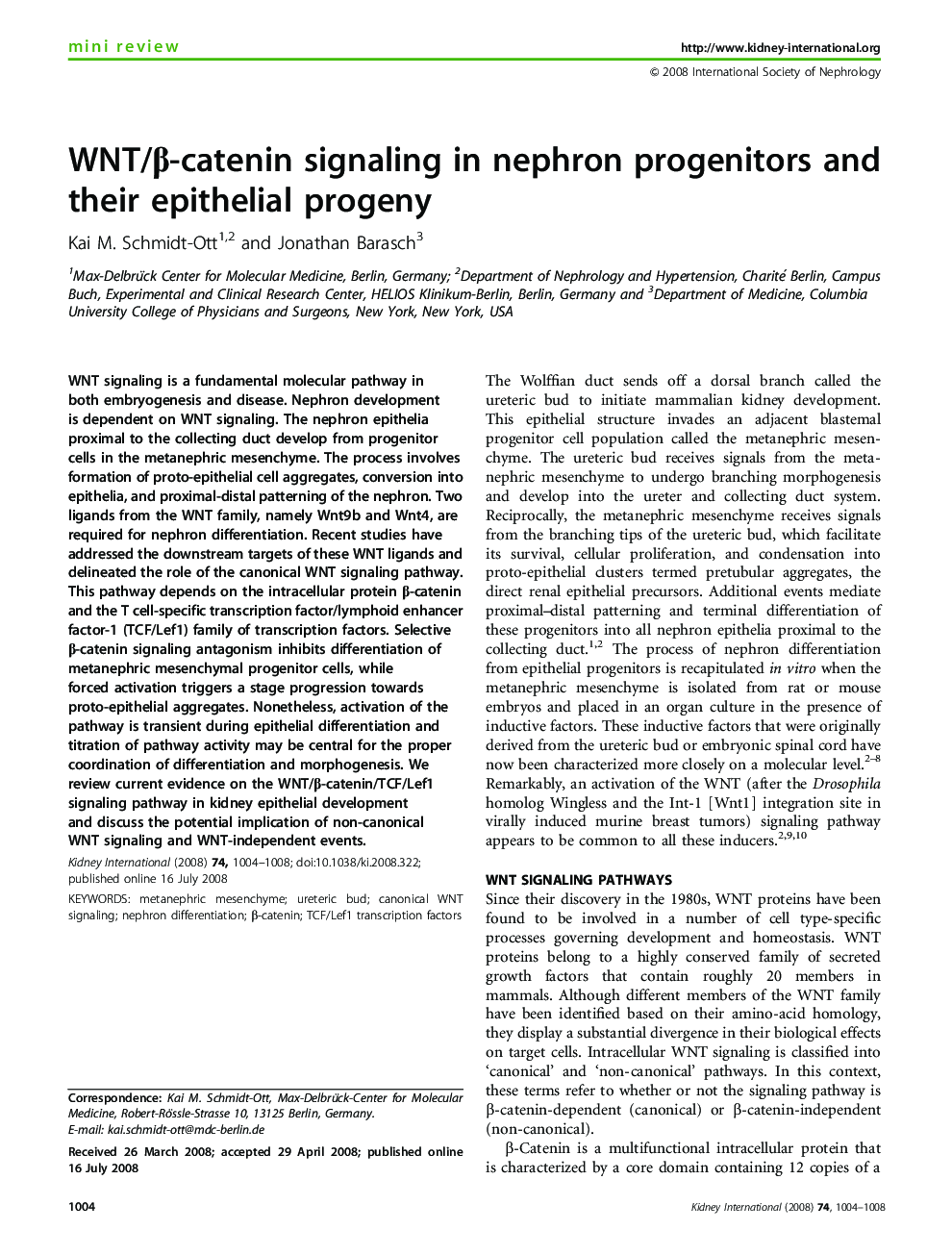| Article ID | Journal | Published Year | Pages | File Type |
|---|---|---|---|---|
| 3884240 | Kidney International | 2008 | 5 Pages |
WNT signaling is a fundamental molecular pathway in both embryogenesis and disease. Nephron development is dependent on WNT signaling. The nephron epithelia proximal to the collecting duct develop from progenitor cells in the metanephric mesenchyme. The process involves formation of proto-epithelial cell aggregates, conversion into epithelia, and proximal-distal patterning of the nephron. Two ligands from the WNT family, namely Wnt9b and Wnt4, are required for nephron differentiation. Recent studies have addressed the downstream targets of these WNT ligands and delineated the role of the canonical WNT signaling pathway. This pathway depends on the intracellular protein β-catenin and the T cell-specific transcription factor/lymphoid enhancer factor-1 (TCF/Lef1) family of transcription factors. Selective β-catenin signaling antagonism inhibits differentiation of metanephric mesenchymal progenitor cells, while forced activation triggers a stage progression towards proto-epithelial aggregates. Nonetheless, activation of the pathway is transient during epithelial differentiation and titration of pathway activity may be central for the proper coordination of differentiation and morphogenesis. We review current evidence on the WNT/β-catenin/TCF/Lef1 signaling pathway in kidney epithelial development and discuss the potential implication of non-canonical WNT signaling and WNT-independent events.
